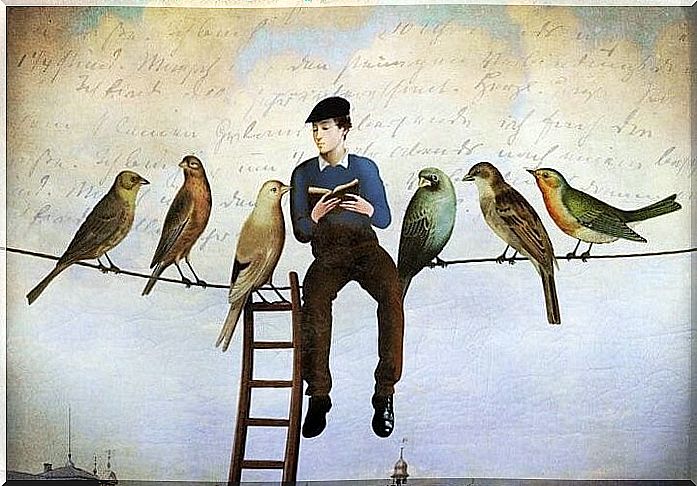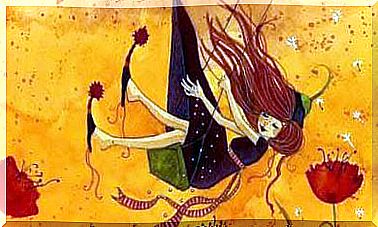Sayings: Capsules Of Wisdom

Sayings are capsules of wisdom, cleverly expressed. They are generally conservative and performed in rhyme. The origin of the word saying has its roots in medieval times, more specifically in songs. The troubadours of that time, included several verses at the end of each verse of these songs. Characteristic that today we know as chorus and they called this poetic repetition refrain , that is to say, refrain.
Sayings are of practical application in life. For this reason, they do not resort to the resources of fantasy and are far from solemnity. Instead, they generally resort to ironies, comparisons, humorous tones, and metaphors, to concretely convey that popular lore.
The sayings have a popular origin and their authors are anonymous. Its provenance may be as old as humanity itself. They are the result of the experimentation and interpretation of the situations to which the human being is doomed throughout his life. Therefore, they constitute knowledge, with application in diversity of cultures.
Classic sayings
There are sayings that appear in virtually every country in the West, regardless of language, even. They pass from generation to generation and continue to be valid, despite the passage of time. They could be considered as universal truths that, for the same reason, are accepted and applied in all kinds of cultures.

Some of the most classic are:
- “Eyes that do not see, heart that does not feel . ” It alludes to the fact that ignorance often saves suffering.
- “To foolish words, deaf ears . ” It does not need further explanation. In that small sentence much of what any therapist would advise someone who is surrounded by intransigent or harmful people whose main hobby is criticism of the other is condensed.
- “For those who get up early, God helps them . ” It exalts the value of acting promptly, in the face of any circumstance.
- “Dog that barks, does not bite . ” A metaphor to indicate that people who threaten a lot are usually not the most dangerous. His barking is simply a product of his own fear and is usually more of a defense strategy than an attack.
- “Who covers a lot, little squeezes. ” A saying that calls not to try to do many things at once, because none of them is done well.
- “Bird in hand is better than a hundred flying . ” This saying has a double face, something that is also typical in the saying. Its opposite would be “Who does not risk does not win”. Thus, the two sentences validate the behavior of the prudent, but at the same time of the brave. Not surprisingly, Aristotle said that in the middle – understood as a point of balance – is virtue.
- “The laundry is washed at home.” Indicates that there are confidences or disputes that should remain in the scope that have occurred. This saying is used because there is the feeling that outside of the specific situation in which the dispute has occurred, it is difficult to understand some behaviors.
Sayings from around the world
Each culture also has its own sayings. These reflect a particular wisdom, gathered according to the history of each people. Many of them are universal, but they use local references to express themselves. These are some samples of these valuable knowledge capsules.
- “Five fingers are brothers, not the same” (Afghanistan). It refers to the fact that equity is not equality. When we talk about equity, we mean not giving everyone the same but those that correspond to them based on their individual characteristics so that the result and not the contribution is what is equated.
- “The rain wets the leopard’s spots but does not remove them” (Africa) This cute saying reminds us that contingencies can affect, but do not eliminate what we have by nature. That no matter how many storms come, no one can modify elements that are so close to us, such as our essence.
- ” No one tests the depth of the river with both feet “ (Africa) A capsule of wisdom that praises the value of prudence. Thus, the fact of measuring risks can give us a great advantage to achieve a good result without paying an excessive price for it.

- “If you stop every time a dog barks you will never get to the end of your path” (Middle East) It alludes to the fact that distractions can become disguised obstacles to achieving the goal we really pursue.
- “ The best closed door is the one that can be left open ” (China) It reminds us that security is not made of bolts, but of trust.
- “The immobile dragon in deep waters becomes the prey of crabs” (China) It refers to the fact that even the most fabulous beings become vulnerable in specific circumstances.
- ” The green wood fire provides more smoke than heat “ (Spain) It refers to the fact that accelerating the processes leads to a limited result.
- “A bug that you do not know, do not step on its tail” (Spain) This saying calls for caution. You shouldn’t start an altercation with someone you don’t know.
- ” The rain does not stay in the sky “ (Finland) This beautiful sentence indicates that times change and sooner or later, they improve and give us a chance. Similar to one of ours who says that “there is no storm that lasts a hundred years.”

- “The heart in peace sees a party in all the villages” (India) He speaks of inner peace as the condition for enjoyment.
- “With just one hair a woman can drag an elephant” (Japan) Refers to the power of the feminine, whose ability is often underestimated.
- “He who is afraid has misfortune. ” (Kurdistan) It reminds us that fear attracts negative situations, in part because the attitude it usually recommends is immobility or backsliding.
- “Being slow to give is like denying” (Portugal) It alludes to the fact that one must be generous on time, because otherwise the usefulness of the contribution may be suppressed. The resources, better to use them or give them on time if this is deep down our desire.
- ” For the ant, the dew is a flood “ (Eastern Europe) He talks about the fact that each one gives a different dimension to situations, according to their smallness or greatness. The same task has a different difficulty depending on the person who faces it.
- “Luck never gives, it only lends” (Sweden) A great truth: what we call “luck” is a temporary accident, which never truly takes root. It is something we cannot count on, an added element that we cannot count on positively but against which we must protect ourselves negatively.









